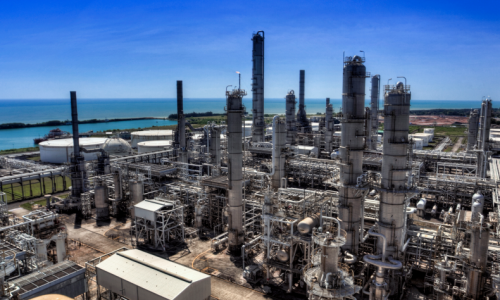Ministry of Energy and Mineral Resources (ESDM) has offered coal downstreaming development projects to China, marking a significant step in the country’s commitment to reducing greenhouse gas emissions.
The initiative was presented during the 7th Indonesia-China Energy Forum (ICEF) on Tuesday, September 3, 2024, as part of Indonesia’s broader efforts to meet its climate goals under the Paris Agreement.
During the 7th ICEF, Bambang Suswantono, Acting Director General of Mineral and Coal at the ESDM ministry, announced that Indonesia is inviting Chinese investments to develop coal into methanol, dimethyl ether (DME), and other by-products.
This initiative aligns with Indonesia’s commitment to reducing its greenhouse gas emissions, as regulated in Law No. 16/2016 on the Ratification of the Paris Agreement to the United Nations Framework Convention on Climate Change.
Bambang said that transitioning coal consumption and transforming it into alternative products like gas are essential steps toward this goal.
Indonesia holds substantial coal resources, estimated at 97.29 billion tons, with reserves of 31.71 billion tons, mostly located in islands of Kalimantan and Sumatra.
To optimize these resources, six companies have already initiated plans to convert coal into products such as gas, fertilizer, and semi-coke.
By 2030, the government aims to commission several coal-to-gas projects, supporting the nation’s energy transition.
Key players like PT Kaltim Prima Coal, PT Adaro Indonesia, Arutmin and others are actively developing these initiatives, which are expected to contribute to Indonesia’s future energy security and environmental targets.










